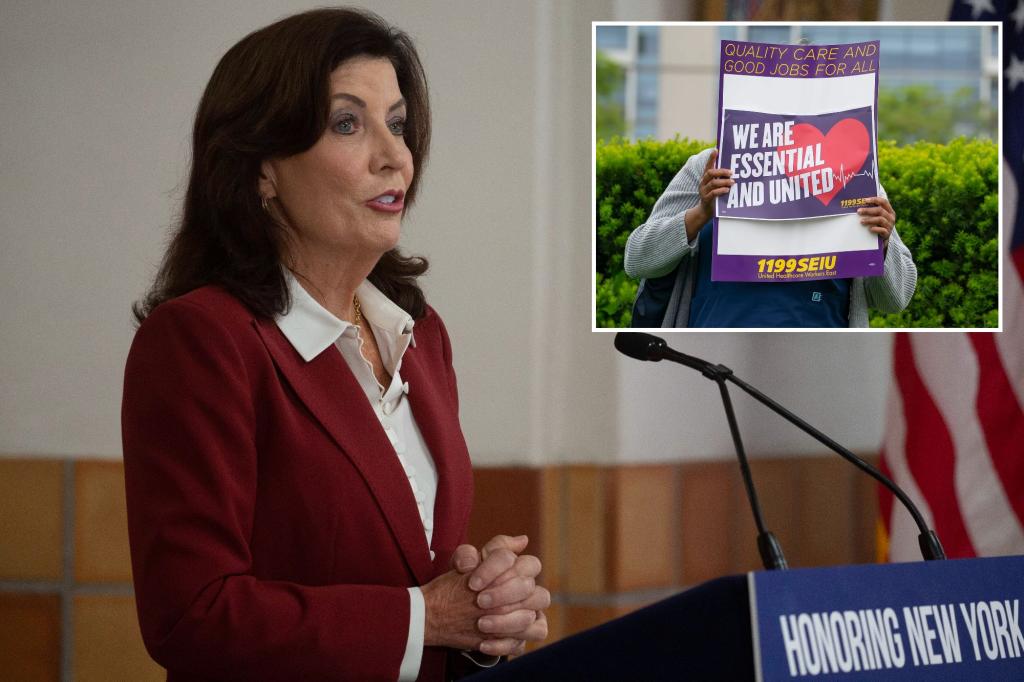Local Union 1199 SEIU United Health Care Workers, also known as 1199 SEIU, has been making efforts to benefit from proposed changes to New York’s home care Medicaid program. The program, which is worth $9 billion, includes the Consumer Directed Personal Assistance Program (CDPAP) that allows New Yorkers to get paid for taking care of loved ones. The union appears to be working to increase its membership and raise wages for workers by influencing the state to allocate more funding for the program. One of the proposed reforms by Governor Kathy Hochul involves consolidating the work of middlemen firms under one company chosen by the Department of Health.
According to sources and documents obtained, 1199 SEIU has been contacting potential bidders for the contract and encouraging them to agree to unionizing 200,000 CDPAP homecare workers under its umbrella. Documents show that the union and the chosen firm would advocate for increased funding to raise wages and benefits for caregivers. While it is not uncommon for a union to negotiate with a potential contractor before being awarded a contract, the extent of 1199 SEIU’s involvement has raised eyebrows. The union’s significant influence in New York politics and ability to secure commitments from bidders demonstrates their power and reach in shaping policy.
In response to questions about the memorandum of understanding (MOU) and the CDPAP, the union confirmed that it had spoken to potential bidders who were eligible to bid for the contract. The MOU presented by 1199 SEIU to bidders included provisions for advocating for increased wages and benefits for caregivers, regardless of whether they choose to be represented by the union. Given the union’s substantial political influence in the state, many are not surprised by their actions to capitalize on the opportunity presented by the proposed changes to the CDPAP.
1199 SEIU has a history of being deeply involved in state politics, with a significant financial investment in political campaigns and activities. The union’s ability to mobilize its members and influence legislators has made it a powerful player in New York politics. Despite initially opposing Hochul’s executive budget proposal for the CDPAP, the union later changed its position and supported the revised plan that involved consolidating fiscal intermediaries under one firm. The union’s shift in stance raised questions about its motives and influence on policy decisions.
The proposed changes to the CDPAP have faced pushback from disability rights activists, lawmakers, and trade groups representing existing fiscal intermediaries. Some have raised concerns about the potential impact of the union’s efforts to raise wages on cost control measures. While the fiscal intermediaries have filed lawsuits to stop the contract from moving forward, 1199 SEIU has continued to support the new proposal. The union’s involvement in shaping the outcome of the proposed changes highlights its significant influence in New York state politics and the healthcare industry.
Overall, the actions of 1199 SEIU in trying to benefit from proposed changes to New York’s home care Medicaid program underscore the union’s power and reach in shaping policy decisions. By leveraging its substantial membership and political influence, the union has been able to advocate for increased wages and benefits for caregivers and secure commitments from potential contractors. Despite facing criticism and legal challenges, 1199 SEIU remains a formidable force in New York politics, with the ability to sway policy decisions and influence the healthcare industry.


